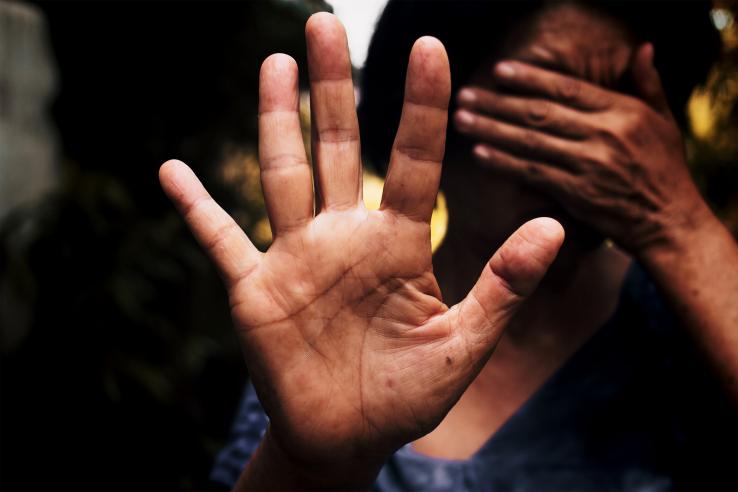
ONE in three Zimbabwean women have experienced physical violence — United Nations Women Africa
Societies worldwide are facing various forms of gender-based violence (GBV) and World Health Organisation (WHO) states that one in three women experiences intimate partner violence or non-partner sexual violence, indisputably this explains the emergency of lobby groups for women’s rights.
While the onset of Covid-19 in 2020 resulted in disruption of social-cultural behaviours, limited economic activities and restricted movements.
Cases of gender-based violence intensified subsequently following lockdown restriction measures. Despite the deadly pandemic’s impact on socio-economic life, international and local organisations continue to amplify awareness campaigns and empowerment initiatives to promote a gender non-violent society.
Since the outbreak of Covid-19, existing gender inequalities have worsened globally, with an increase in child marriages, sadomasochistic relationships and domestic violence.
Many countries reported an escalation of GBV during the lockdown, in step with UN Women 2020 findings, France reported an increase of 30% of domestic violence cases since the lockdown on March 17; Cyprus and Singapore reported an increase in helpline calls by 30% and 33% respectively; in Argentina emergency calls for domestic violence cases increased by 25% since the beginning of the lockdown; in Canada, Germany, Spain, the UK and the US, government authorities, women’s rights activists and civil society partners have indicated increasing reports of domestic violence during the pandemic.
In Africa, there has been a sharp increase in gender-based violence. East and southern region have high rates of sexual violence against women and girls.
According to the United Nations Population Fund (UNFPA) around 20% of girls aged 15-24 years reported they had experienced sexual violence with an intimate partner.
- Chamisa under fire over US$120K donation
- Mavhunga puts DeMbare into Chibuku quarterfinals
- Pension funds bet on Cabora Bassa oilfields
- Councils defy govt fire tender directive
Keep Reading
WHO Director-General Dr Tedros Adhanom Ghebreyesus denotes that: “Violence against women is endemic in every country and culture, causing harm to millions of women and their families, and has been exacerbated by the Covid-19 pandemic.
“But unlike Covid-19, violence against women cannot be stopped with a vaccine. We can only fight it with deep-rooted and sustained efforts — by governments, communities and individuals — to change harmful attitudes, improve access to opportunities and services for women and girls, and foster healthy and mutually respectful relationships”.
Lockdown restriction by the Zimbabwean government had immediate and long-term consequences on social fabric. In the first two weeks of lockdown, the national GBV hotline run by Musasa Project registered 746 cases of gender-based violence with a 150 increase as compared to 500-600 before the pandemic.
Moreover Musasa has recorded 40 000 GBV related cases in 2020 and 26 779 (January to August ) in 2021.There has been an upsurge in child marriages, teenage pregnancy, and sexual exploitation since school closed in March 2020.
Restriction measures, such as, social distancing, lockdown and working from home increased the risks of domestic violence.
During 2021 women’s month commemorations, provincial nursing officer for Mashonaland Central province Ann Chinyemba said: “Reports indicate over 1 000 girls getting into marriage and almost 5 000 cases of teenage pregnancies in a space of three months.
These alarming statistics present clear evidence of the need for all to take action and end violence against women and girls”.
Covid-19 has exacerbated many existing drivers of gender-based violence, such as patriarch, cultural norms and poverty. Money related precariousness and nourishment uncertainty increased family pressures.
“We know that the multiple impacts of Covid-19 have triggered a “shadow pandemic” of increased reported violence of all kinds against women and girls,” says UN Women Executive Director Phumzile Mlambo-Ngcuka
December 10, 2021 stamped the conclusion of the 16 days of activism against gender-based violence.
The 16 days bring the spotlight on gender-based violence and global solidarity in elimination of violence against women and girls.
Praise Foundation, a local non-profit organisation that ensures the social, political, psychological and economic empowerment of women joined the rest of the world in campaigns through various initiatives and programmes, which include online activism, awareness campaigns and charity fundraisers to support GBV survivors.
These programmes focused on Sustainable Development goals 3 and 5, which focus on good health and wellbeing and gender equality, respectively. .
The threat of gender-based violence combined with Covid-19 results in women and girls confronting multiple intersecting patterns of physical, sexual, psychological and economical violence.
In order to mitigate the impact, we need to capacitate and strengthen key services to improve quality of response, including men and boys in GBV programming, putting women at the centre of policy and integration of GBV prevention into women’s socio-economic empowerment initiatives.With the above, we can regain GBV status prior Covid-19.
LOVEMORE Nyawo development practitioner.











